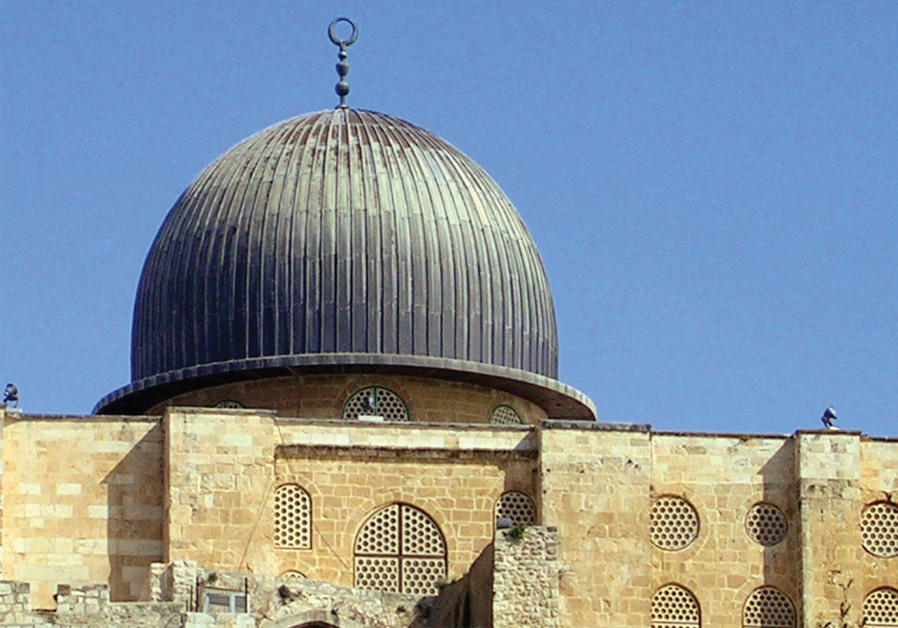The opinions expressed on this webpage represent those of the individual authors and, unless clearly labeled as such, do not represent the opinions or policies of TBS.
Is Jerusalem a sacred Islamic City?
There is a big difference between a city being sacred in the eyes of God and it being a sacred Islamic city.

This is a question the majority of Muslims within the political and academic world try to avoid, simply because it opens a rather uncomfortable discussion. In fact, a Muslim asking such a question could face serious consequences; such as society doubting in his/her faith.
Sacred cities in Islam
Throughout human history, every religion has been associated with an area that has been sanctified, respected and revered. Islam is no different. There are tens of sacred cities in Islam, such as Mecca, Medina, Qum, Karbala and Najaf – due to clear verses of the Koran acknowledging their glory or sayings of Prophet Mohammad assuring Muslims of their exaltation.
There is a big difference between a city being sacred in the eyes of God and it being a sacred Islamic city. For example, all prophetic tombs, birthplaces and areas where miracles took place are considered sacred in Islam, but they are not specifically Islamic locations. A sacred Islamic location is a location wherein a significant Islamic event has taken place by either Allah or Prophet Mohammad.
Jerusalem in Islamic scripture
The Holy Koran states very clearly that the Holy Land, Jerusalem, belongs to the Jewish nation of Moses, the Israelites:
“And [mention, O Muhammad], when Moses said to his people, “O my people, remember the favor of Allah [God] upon you when He appointed among you prophets and made you possessors and gave you that which He had not given anyone among the world” (Koran: 5:20 onwards).
The above verse also makes it clear that God “had not given (this land to) anyone among the world” other than the Jewish nation.
From this verse, and others of similar context, we understand that Jerusalem is a sacred city according to God, but it is not a sacred Islamic city, due to the fact that its sacredness was established before the existence of Islam.
After the emergence of Islam, in the year 621 CE, it is believed that Prophet Mohammad took a miraculous and spiritual night journey to Al-Aqsa Mosque (the Farthest Mosque). This event is reported in the Koran in the following verse:
“Exalted is He who took His Servant by night from the Sacred Mosque (Mecca) to al-Masjid al- Aqsa (the Farthest Mosque), whose surroundings We have blessed, to show him of Our signs…” (Quran 17:1).
Two vital matters need to be addressed regarding the above verse:
1. Prophet Mohammad traveling to a location does not make that location “Islamic.”
2. There is little evidence that “Al-Aqsa Mosque” is actually in Jerusalem, and there are a large number of Muslims who believe that “the Farthest Mosque” is a reference to a mosque in the heavens, not on earth; due to the fact that the current Al-Aqsa Mosque did not exist during the lifetime of Prophet Mohammad, making it impossible for him to have visited it.
Messengers of both Judaism and Christianity had arrived in Jerusalem to preach their scriptures centuries before Prophet Mohammad. Therefore, it cannot be historically accurate to say that Mohammad brought Islam to Jerusalem before them.
Up until the migration of Mohammad to Medina in 622 CE and the official establishment of Islam therein, Islam was a minority religion when compared to the two well-established religions of Judaism and Christianity. Besides, the citizens of Jerusalem who converted to Islam merely changed their own faith, not the entire history of Jerusalem.
Thus, neither Islamic scripture nor history claim that Jerusalem is a sacred Islamic city.
Jerusalem meets Islam
In May 632 CE, Prophet Mohammad appointed Usama ibn Zaid as the commander of his army to respond to the Romans in an agreed-upon battle within Palestine.
The next day Usama set out for his expedition, but he then learnt that Mohammad had died and therefore he returned to Medina. Caliph Abu Bakr then ordered Usama to increase his army to 3,000 men and to attack the inhabitants of the Kingdom of Moab and Byzantine-held Darum, to kill or capture as many as he could and Usama did so.
